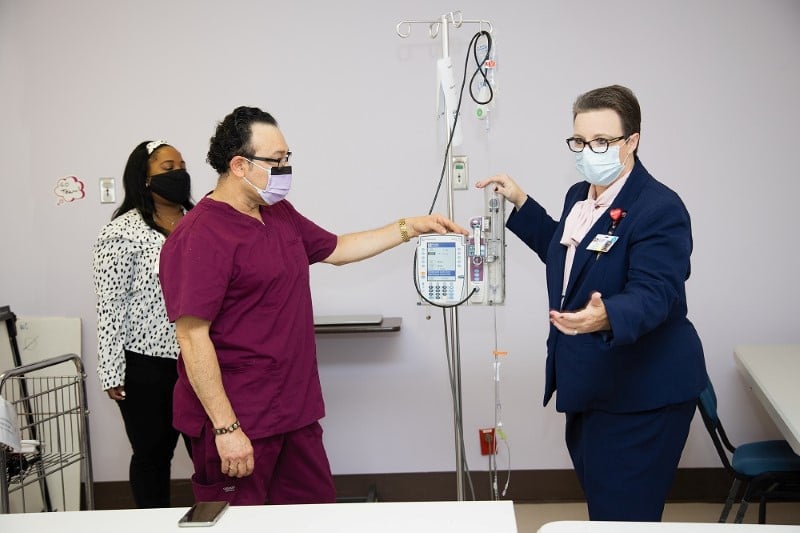Providing Continuous Education Opportunities for Southern California Hospital at Culver City Nurses

With newly formed clinical education programs, nurses at Southern California Hospital at Culver City have more opportunities to continue learning and expand their skill set than ever before. The programs train nurses in specialized areas such as critical care and emergency to allow them to work in departments where demand is high, particularly in light of the recent pandemic.
“When COVID hit, the U.S. experienced a national shortage of nurses with the hardest hit areas being intensive care units, emergency rooms, and operating rooms,” said Jessica Dela Rosa, director of clinical education at Southern California Hospital at Culver City. “That blew up the opportunity for nurses to get specialty training in those areas of care.”
Dela Rosa and her colleagues started a Critical Care Internship which accepts nurses who are already experienced in medical-surgical or telemetry for placement in the ICU or ER. Interns enter a 6-week training course that teaches fundamental knowledge on practicing in these areas to develop their skills and competencies. The education department has gone through three cohorts so far, with a total of 15 nurses successfully completing the program.
Also kicking off this month is a 3-month operating room (OR) training program, which is perhaps the most difficult specialty training program to implement in an acute care environment. The first cohort is made up of two new graduates and three experienced nurses.
To find a career with SCH-Culver City, click here.
“The nurses have responded really well to the new programs, and they all come to our department asking for opportunities,” Dela Rosa said. “The staff here are definitely hungry for the education, which I’m very proud of.”
The initiative for continued education started in April of last year when Dela Rosa first joined the hospital. At that point, it had a program that covered orientation for new hires but little else. As an expert in nursing professional development, she was brought on board to create opportunities for nurses to transition into specialty areas where they would be happy.
Nurses being satisfied with their work means less burnout and turnover — along with a higher quality of patient care, according to research. Studies have shown that poor working conditions for nurses can have a negative impact on patient health outcomes and patient satisfaction.
“These new programs give nurses a chance to choose an area that they will engage in, driven by a nurse’s own desire to become a critical care nurse or an operating room nurse,” said Dela Rosa. “You now have happier people taking care of patients, which improves the environment for their healing process to take place.”
She has hired four more educators in the last few months, all of whom have master’s degrees at minimum. Two out of the five educators also have their doctorates. Dela Rosa emphasizes that all the programs they develop are evidence-based and meet national guidelines for nursing. The team’s goal is to empower nurses, help them become engaged in their work, and continue advancing their careers.
Future initiatives by the department will include even more growth opportunities for nurses, such as basic arrhythmia training for telemetry nursing, stroke care, advanced critical care, and others.
“Having educated nurses makes our facility stronger, which means patients are getting better care,” said Brown. “Our staff benefits by understanding that we are invested in them and their future, and our community benefits by knowing there is a highly rated facility right in their backyard. It all starts with education.”
